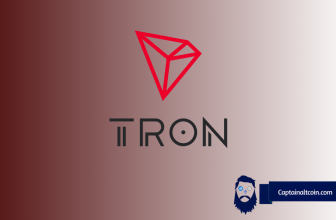
- Venezuelan cryptocurrency Petro’s red flags mount as president Maduro artificially raises the coin’s value
In a plot taken straight from a communist utopia novel, Venezuelan president Nicolas Maduro declared new domestic economic policies as a part of the country’s state-enforced “Plan of Economic Recovery”.
These new policies were delivered on Thursday through a Maduro speech that was broadcasted over the National Radio and Television Network of Venezuela. The policies will include an increase of the national minimum wage by 150% as well as an artificial change of value of the country’s national cryptocurrency Petro.
Speaking from his Miraflores Palace residence, Maduro announced that Petro will be fixed at a value of 9000 domestic Bolivars from December 1st. Calling the cryptocurrency “the most important saving instrument that exists in the country,” Maduro introduced other centrally planned measures that are meant to help stave off the effects of the worst economic crisis in the nation’s history.
All that being said, Petro remains one of the biggest question marks in the current crypto marketplace. The red flags about it just keep mounting up and it’s becoming more obvious by the day that the cryptocurrency might not even exist. To sum up just a few of them:
- the currency isn’t traded on any exchange nor is it listed on any crypto data aggregator
- Petro block explorer shows no transactions and allows no blocks to be actually explored
- buying Petro is done by purchasing an IOU certificate issued by the state of Venezuela
- Petro issuance, trading and price are completely dictated by the Venezuelan government
One of the most recent problems with Petro was the fact that the Venezuelan government instructed potential investors to purchase their certificates before January 1st of 2019. One Reddit user explains why this is a problem:
“Real cryptocurrencies cannot be banned from trading like this, since they are fungible, cryptographically secure and decentralized, and this ban for Petro purchased in 2019 and beyond proves that the Petro is just a non-fungible paper certificate at this point.”
- Fork of Stellar Lumens (XLM) showing signs of being a scam
Reddit user u/KodineDreamin posted a thread describing potentially fraudulent behavior exhibited by a fork of the popular Stellar Lumens cryptocurrency.
According to the post, a project called Stellar Activity (XLA) is looking to scam people who potentially decide to become a part of their upcoming airdrop.
The project apparently kicked off its existence in a pretty bog-standard fashion for the average crypto project: post on the bitcointalk.org forums, say you’ll do a big airdrop on a specific date, and then start bounties and marketing tactics to spread the news across social media with unexpected followers.
What sets XLA apart from regular cryptocurrency projects is the fact that they ask potential airdrop receivers to input their wallet’s private key into XLA’s account viewer on the day of the airdrop, so that the XLA could be properly distributed.
As any experienced crypto user knows, you never give your private key to anyone as that gives them direct access to your wallet and exposes your funds to being stolen. Legitimate airdrops that are based on what you hold in your wallet utilize wallet screenshots to determine how much of their token you are supposed to receive.
The user went on to expose the people behind this project as the people related to two previous XLM-related scam projects called StellarShade and Stellar Dolphin Fork. Check out the complete thread about this scam here.
- Dash beefs its network security with a new ChainLocks feature
Popular peer-to-peer payment focused cryptocurrency Dash made an important step towards increasing the security of its network by implementing a feature called ChainLocks.
The solution was introduced through a Dash Improvement Proposal (DIP) number 8 and is supposed to solve a variety of network disrupting events, including 51% attacks. It will “leverage long-living masternode quorums (LLMQs) to sign blocks as they are seen by the network, protecting against attacks and attempts to reverse transactions”.
ChainLocks solution is expected to make mining-based 51% network takeovers impossible and should also help with other mining-related problems like selfish mining and chain reorganizations.
The new feature will have a significant effect on the Dash users as well since their transactions will now be trustworthy after a single confirmation. It will also enable Dash’s security model to operate at vastly increased efficiency over other proof-of-work setups.
Dash proclaims that ChainLocks feature cannot be introduced onto a network that doesn’t utilize masternodes (one node needs to own 1000 Dash to become a masternode). One of the main prerequisites for ChainLocks to operate in a secure way is a Sybil protected network of semi-trusted nodes, which is exactly what Dash has to offer.
The ChainLocks feature becomes the latest in the long list of features that this masternode-based network offers, including instant transactions, advanced privacy, and governance.
- NEO to launch a file storage solution
So-called “Chinese Ethereum” NEO announced their collaboration with NSPCC (NEO Saint Petersburg Competence Center) on a decentralized file storage system. This system will look to “duke it out” with such competition as Dropbox and Amazon S3 on the market of decentralized file storage/sharing.
The collaboration was announced on November 30th, during a NEO meetup in Sankt Petersburg, where NSPCC members revealed the details of their upcoming NEO related/backed project. Besides NEO, the project will be backed by the Russian Association of Cryptoindustry and Blockchain (RACIB), NEO Global Development (NGD) and NEO’s development incubator City of Zion.
The solution will allow its users to utilize distributed storage for dApps in both a public and private capacity. It will feature a unique method of data audit based on homomorphic hashing, which places a minimal load on the network.
“It’s architecture is comprised of an inner ring and outer ring, where inner ring nodes periodically distribute a network map to all outer nodes, so that stored objects can be located and retrieved P2P without calling central nodes,” says the official project announcement.
NEO will look to integrate this solution as a native element of its ecosystem under a name NeoFS. Read more about the project and their roadmap here.






